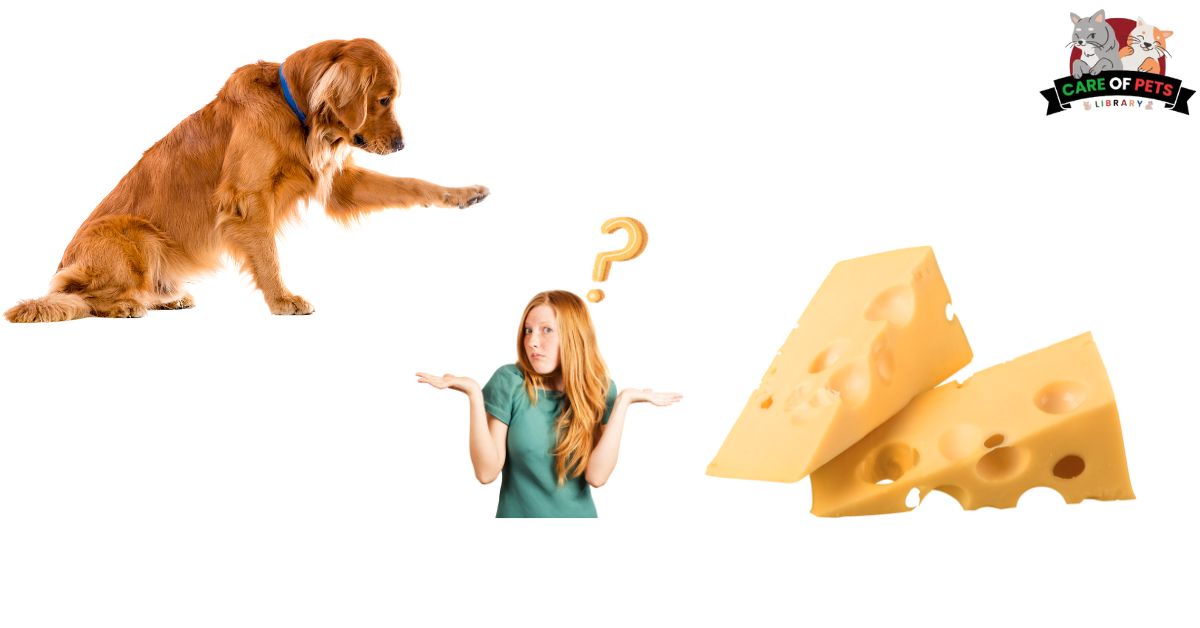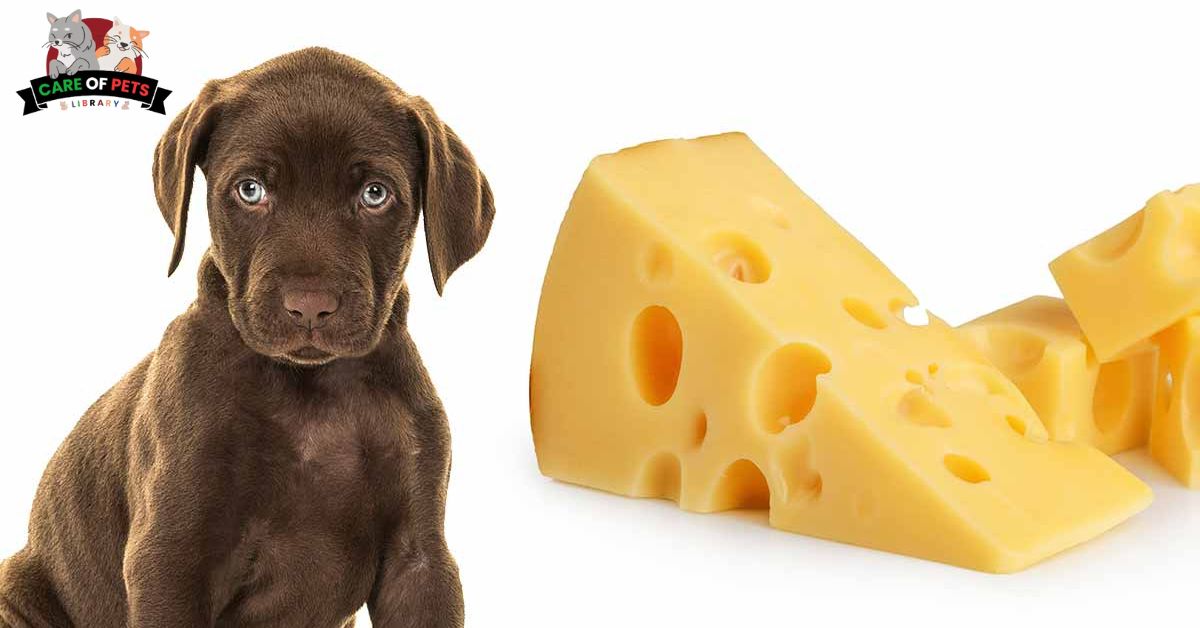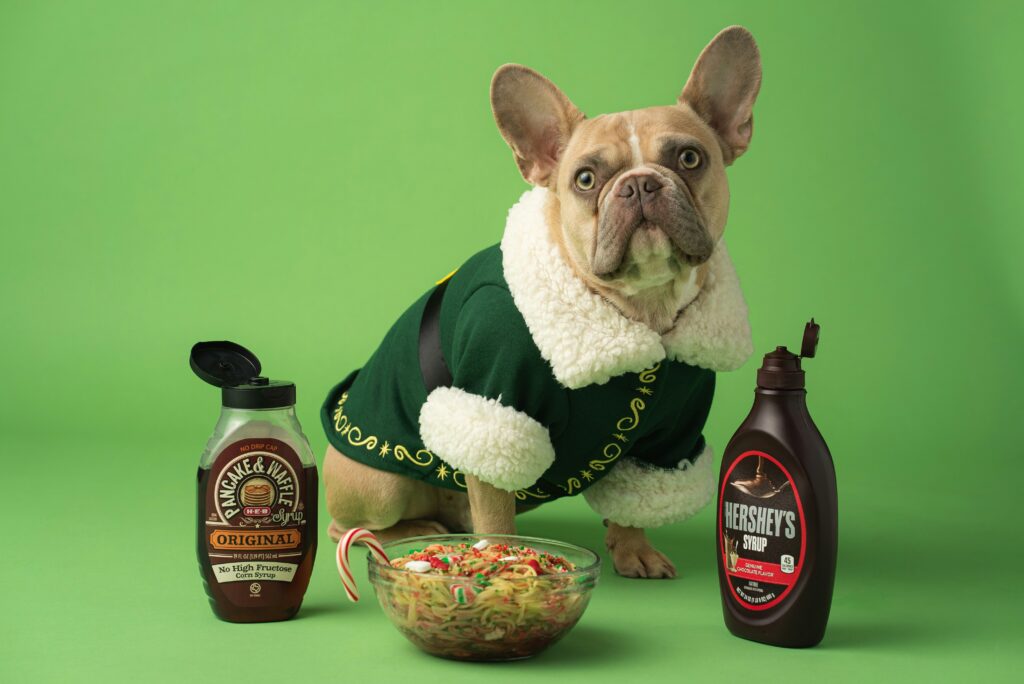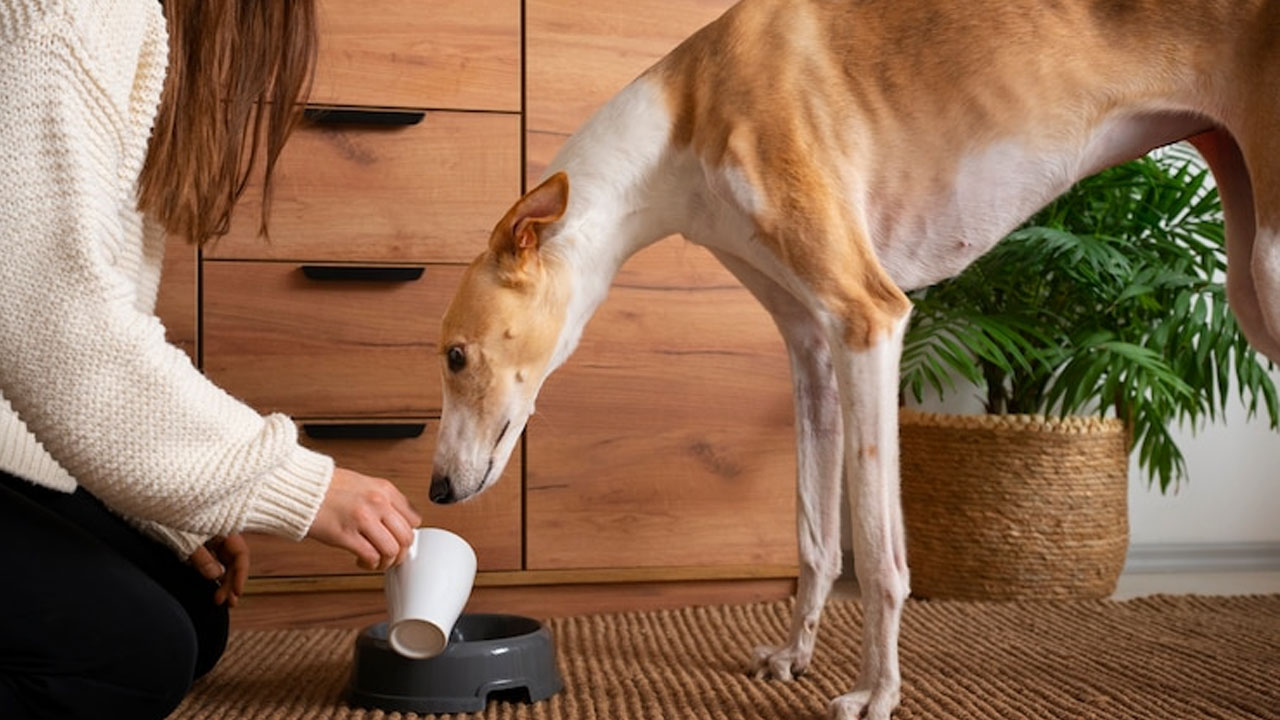
Wondering if it’s safe to share your favorite snack with your furry friend? Welcome to our comprehensive guide on dogs and cheese! From understanding which types of cheese are safe for dogs to enjoy to learning about potential health risks, we’ve got you covered. Let’s explore the ins and outs of cheese consumption for dogs, ensuring your pet’s safety and well-being.
Can Dog Eat Cheese?
Yes, but with caution. Cheese can be a delightful occasional treat for your furry friend, offering nutritional benefits like protein and calcium. However, it’s crucial to choose the right type of cheese and serve it in moderation.
Some cheeses, like cheddar cheese and mozzarella cheese, are safer options, while blue cheese and cheeses with garlic or herbs should be avoided. Dogs can have lactose intolerance, leading to digestive issues like upset stomach and diarrhea. Low-fat cheeses like cottage cheese or mozzarella sticks are excellent choices to avoid health issues such as weight gain and high-fat content.
Always monitor your dog for any adverse reaction and consult your vet if unsure. Remember, while a bit of cheese can be a tasty treat, it should never replace a balanced diet for your canine companions.
What Kind of Cheese is Good for Dogs?
Low-fat cheese options like cottage cheese and mozzarella cheese are excellent choices for your furry friend. These types of cheese offer nutritional benefits, such as being a source of protein and calcium, which are essential for strong bones. 
However, it’s important to serve cheese in moderation to avoid health issues like weight gain and digestive upset. Avoid blue cheese, as well as cheeses with garlic, herbs, or high sodium content, as they can cause adverse reactions. Soft goat cheese and string cheese can be suitable occasional treats for dogs with sensitive stomachs or picky eaters.
Always monitor for signs of lactose intolerance, like an upset stomach, and consult your vet if you notice any issues. Remember, while cheese can be a delightful treat, it should not replace a balanced diet for your canine companions.
What Happens if My Dog Eats Cheese?
If your dog eats a bit of cheese, such as cheddar cheese or mozzarella cheese, they may enjoy its taste and nutritional benefits, like protein and calcium. However, cheese for dogs should be given in moderation. Consuming too much can lead to health issues like weight gain and digestive upset, especially if your dog has lactose intolerance.
Some types of cheese, like blue cheese and cheese with garlic or herbs, can cause serious adverse reactions and should be avoided. For dogs with sensitive stomachs, low-fat cheese options like cottage cheese are healthier choices.
Always monitor your dog for any signs of stomach upset or allergic reactions after eating cheese and consult your vet if you notice any health concerns. Remember, cheese should only be an occasional treat, not a regular part of their diet.
What Foods are Toxic to Dogs?
Many common human foods can be dangerous for dogs. Chocolate, grapes, and raisins are highly toxic and can cause severe health issues. Onions and garlic, often found in various dishes, can lead to gastrointestinal upset and damage red blood cells.
Certain types of cheese, like blue cheese and those with garlic or herbs, can cause adverse reactions. While dairy products like cream cheese and American cheese might seem harmless, they can lead to upset stomach and lactose intolerance in dogs.
Foods high in fat content, such as fatty acids in certain cheeses, can cause weight gain and pancreatitis. It’s important to offer treats like cheddar cheese and mozzarella cheese in moderation and avoid high-sodium or spicy cheeses. Always consult your vet before introducing new foods to ensure they are safe for your furry friend.
What About Cottage Cheese & Other Types?
Cottage cheese is a low-fat cheese option that can be a healthy choice for dogs when given in moderation. It offers excellent nutritional benefits like protein and calcium, which support strong bones.
However, some types of cheese, such as blue cheese and those with high-fat content or added herbs, can lead to adverse reactions and upset stomachs in dogs. Other safer options include mozzarella cheese and soft goat cheese, which are lower in fat and sodium content.
Remember to monitor your dog for any signs of lactose intolerance, like stomach upset or diarrhea, especially if they consume dairy products like cream cheese or Swiss cheese. Always consider the calorie content and potential health issues, and consult your vet to ensure these occasional treats fit into your canine companion’s balanced diet.
Is Cheese Bad for Dogs?
Cheese isn’t inherently bad for dogs, but it should be given in moderation. Types of cheese like cottage cheese and mozzarella cheese can offer nutritional benefits such as protein and calcium, which are excellent for bone health.

However, some cheeses, like blue cheese and those with high salt content or added herbs, can cause adverse reactions and upset stomachs. Dogs with lactose intolerance may experience digestive issues from dairy products like cream cheese and Swiss cheese. High-fat cheeses can contribute to weight gain and other health issues.
For dogs with sensitive stomachs or those who are picky eaters, low-fat cheese options like string cheese or soft goat cheese can be better choices. Always monitor for any signs of allergic reactions or digestive upset, and consult your vet to ensure cheese fits into your furry friend’s balanced diet as an occasional treat.
Can Dogs Eat Cottage Cheese?
Yes, dogs can eat cottage cheese in moderation. Cottage cheese is a low-fat cheese that can be a healthy choice for your furry friend, providing excellent nutritional benefits like protein and calcium, which are great for strong bones.
However, it’s important to monitor your dog for any signs of lactose intolerance or upset stomach, as dairy products can cause digestive issues in some dogs. Compared to other types of cheese, cottage cheese has lower fat content and sodium levels, making it a safer option. Avoid giving your dog high-fat cheeses like blue cheese or cheeses with added ingredients such as garlic and herbs.
While cottage cheese can be an occasional treat, it should not replace a balanced diet. Always consider your dog’s overall health and consult your vet to ensure that cottage cheese fits into their diet without causing any health issues.
Can Dogs Eat Mac and Cheese?
While dogs can technically eat mac and cheese, it is not recommended as a regular treat. Mac and cheese often contain high-fat content, dairy products, and various types of cheese, such as cheddar cheese or American cheese, which can lead to weight gain and digestive issues in dogs.

Dogs with lactose intolerance might experience an upset stomach or diarrhea. The high-calorie content and salt levels in mac and cheese can also pose health risks, especially for dogs with sensitive stomachs or those prone to obesity. Occasional treats like a bit of cheese might be okay, but mac and cheese is better avoided due to its potential adverse reactions.
Instead, stick to healthier options like low-fat cheese or small amounts of cottage cheese, which can offer nutritional benefits without the same risks. Always consult your vet before introducing new foods to ensure they are safe for your canine companions.
Which Dogs Should Avoid Eating Cheese?
Dogs with lactose intolerance should avoid eating cheese, as they lack the enzyme lactase needed to properly digest lactose, the sugar found in dairy products. Consumption of cheese by lactose-intolerant dogs can lead to digestive issues like upset stomach, diarrhea, and bloating.
Additionally, dogs prone to weight gain or obesity should limit their intake of cheese due to its high fat content, which can contribute to unwanted weight gain and related health issues. Dogs with known allergies to dairy products should also avoid cheese, as it can trigger allergic reactions such as itching, skin rashes, or gastrointestinal upset.
While cheese can be a tasty occasional treat for many dogs, it’s important to consider your furry friend’s individual health needs and consult with your veterinarian before incorporating cheese into their diet.
Conclusion
While cheese can be a tasty treat for dogs, it’s essential to approach it with caution. Some types of cheese may pose health risks, particularly for dogs with lactose intolerance or those prone to weight gain. However, when given in moderation and as part of a balanced diet, certain types of cheese can offer nutritional benefits. Always consult with your veterinarian to ensure you’re making the best choices for your furry friend’s health and well-being.
For More Information
We have a ton of information regarding what foods, from popular snacks to fruits, are healthy or harmful for your dog. You might also be interested in ” can dog eat bread “
FAQ
Is it Safe for Dogs to Eat Cheese?
Don’t worry, most puppies may safely consume cheese as it is not poisonous. On the other hand, certain dogs may not respond well to dairy products due to lactose intolerance. However, limiting your dog’s cheese intake is still a smart idea even if they don’t have a lactose intolerance.
What is the Safest Cheese for Dogs?
It is therefore preferable to give your dog low-fat cheeses, such as cottage cheese, soft goat cheese, or mozzarella. Compared to other cheeses, cottage cheese has less fat and salt, which lowers the risk of obesity. Additionally, cottage cheese has less lactose, which lessens the possibility of stomach distress.
What is the Healthiest Meat for Dogs?
Animal-based proteins, such as those found in chicken, turkey, lean ground beef, chuck steak, or roast, aid in the development of powerful dogs. A few guidelines are in effect: Cook meat to perfection every time. Never serve it undercooked or uncooked.













